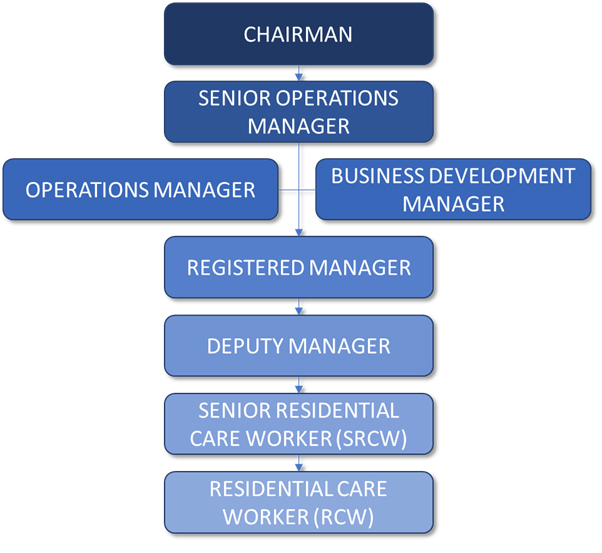Positive Outcomes; Modern Slavery and Human Trafficking Policy
1. Modern slavery and human trafficking
Modern slavery is a serious crime that violates human rights. Victims are forced, threatened or deceived into situations of subjugation, degradation and control which undermine their identity and sense of self. Modern slavery encompasses human trafficking and slavery, servitude and forced or compulsory labour.
Human trafficking consists of three basic components: action, means and purpose of exploitation. All three components must be present in an adult trafficking case; for child trafficking, the ‘means’ component is not required. In human trafficking cases, exploitation can take many forms, including sexual exploitation, forced labour, slavery, servitude, forced criminality and removal of organs.
Some people may not be victims of human trafficking but still victims of modern slavery if they have been subject to slavery, servitude and forced or compulsory labour. Human trafficking is not the same as human smuggling. There are common myths about modern
slavery, such as misconceptions that UK nationals cannot be victims and that a person cannot be a victim if they reject offers of help.
The essence of human trafficking is that the victim is coerced or deceived into a situation where they are exploited. Article 4(a) of the Council of Europe Convention on Action against Trafficking in Human Beings (the Convention) defines ‘human trafficking’ as:
“the recruitment, transportation, transfer, harbouring or receipt of persons, by means of the threat or use of force or other forms of coercion, of abduction, of fraud, of deception, of the abuse of power or a position of vulnerability or of the giving or receiving of payments or benefits to achieve the consent of a person having control over another person, for the purpose of exploitation. Exploitation shall include, at a minimum, the exploitation of the prostitution of others or other forms of sexual exploitation, forced labour or services, slavery or practices similar to slavery, servitude or the removal of organs.”
An important aspect of this definition is an understanding of trafficking as a process comprising a number of interrelated actions rather than a single act at a given point in time. Once initial control is secured, victims are generally moved to a place where there is a market for their services, often where they lack language skills and other basic knowledge that would enable them to seek help. While these actions can all occur within one country’s borders, they can also take place across borders with the recruitment taking place in one country and the act of receiving the victim and the exploitation taking place in another. Whether or not an international border is crossed, the intention to exploit the individual concerned underpins the entire process.
2. Policy
This policy serves as the organisation’s transparency statement under Section 54 of the UK’s Modern Slavery Act 2015.
The organisation strictly prohibits the use of modern slavery and human trafficking in its operations and supply chain. We will continue to be committed to implementing systems and controls to ensure modern slavery is not taking place anywhere within the organisation or in any supply chain.
The organisation is committed to a zero-tolerance approach to modern slavery and acting with integrity in its dealings, relationships, and supply chains. The organisation expects the same high standards from its staff, suppliers, contractors, and those with whom it does business.
3. Scope
This policy applies to persons working for us or on our behalf in any capacity, including employees, directors, officers, agency workers, seconded workers, volunteers, agents, contractors and suppliers.
4. Corporate structure and businesses

5. Due diligence
Modern slavery is a crime and a violation of fundamental human rights. The organisation expects everyone working with us or on our behalf to support and uphold the following measures to safeguard against modern slavery:
we have a zero-tolerance approach to modern slavery in our organisation and our supply chains the prevention, detection and reporting of modern slavery in any part of our organisation or supply chain is the responsibility of those working for us or on our behalf workers must not engage in, facilitate or fail to report any activity that might lead to, or suggest, a breach of this policy. We are committed to engaging with our stakeholders and suppliers to address the risk of modern slavery in our operations and supply chain. We take a risk-based approach to our contracting processes and keep them under review. Consistent with our risk-based approach, we require:
- suppliers with a turnover of over £36 million to provide a copy of their Slavery and Human Trafficking Policy
- suppliers to confirm their compliance with the Modern Slavery Act 2015
- suppliers engaging workers through a third party to obtain that third party’s agreement to comply with the Modern Slavery Act 2015
our contractual documentation with supply chains incorporates specific prohibition against slavery or servitude, the use of forced, compulsory or trafficked labour as part of our ongoing risk assessment and due diligence processes, we will consider whether circumstances warrant us carrying out audits of suppliers for their compliance with the Modern Slavery Act 2015. If we find that other individuals or organisations working on our behalf have breached this policy, we will ensure we take appropriate action
6. Reporting of modern slavery
The organisation encourages anyone to raise any concerns about modern slavery as soon as possible if they believe or suspect that a conflict with this policy has occurred or may occur in the future. The organisation has a whistleblowing policy which can be used to report any instances of modern slavery. Whistle-blowers are protected through the organisation’s confidential reporting process.
7. Responsibility for this policy
The organisation’s management has overall responsibility for this policy and ensures that the organisation complies with its legal and ethical obligations. The prevention, detection and reporting of modern slavery in any part of our business or supply chains is the responsibility of those working for us or under our control.
8. Training
As part of our commitment to combat modern slavery, staff induction will include training on this policy and on the risks the organisation faces from modern slavery in its supply chains.
9. Breach of the policy
Members of staff are required to read, understand and comply with this policy. Any staff member who breaches this policy will face disciplinary action, which could result in dismissal. The organisation reserves the right to terminate its relationship with individuals and organisations working on our behalf if they are in breach of this policy.
10. References
Modern Slavery Statutory Guidance
Slavery and human trafficking include:
(a) conduct which constitutes an offence under any of the following:
(i) section 1, 2 or 4 of the Modern Slavery Act 2015,
(ii) section 1, 2 or 4 of the Human Trafficking and Exploitation (Criminal Justice and Support for Victims) Act (Northern Ireland) 2015 (c. 2 (NI)) (equivalent offences in Northern Ireland),
(iii) section 22 of the Criminal Justice (Scotland) Act 2003 (asp 7) (traffic in prostitution etc.),
(iv) section 4 of the Asylum and Immigration (Treatment of Claimants, etc.) Act 2004 (trafficking for exploitation),
(v) section 47 of the Criminal Justice and Licensing (Scotland) Act 2010 (asp 13) (slavery, servitude and forced or compulsory labour), or
(b) conduct which would constitute an offence in a part of the United Kingdom under any of those provisions if the conduct took place in that part of the United Kingdom.
11. Revision history
Date of next review October 2022
Date of review October 2021
Date of release August 2020


